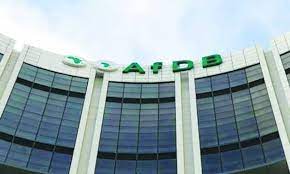Risky markets in the world are currently facing crisis in different sectors with the elongated scarcity of dollar in those countries, even as debt servicing takes a chunk of the dollars meant for other services.
Based on the foregoing, currencies from Ghana, Egypt, Pakistan and Zambia have crumbled far more this year than their global peers.
In Nigeria, international airlines suffered the backlash as they could not remit fund back home.
“Pakistan, Sri Lanka and Ghana — maybe now is not the time to deploy capital there,” he said. “But Egypt could be an opportunity if the International Monetary Fund (IMF)program is successful at supporting the economy while tough reforms are implemented.”
In some of the world’s most vulnerable developing nations, the situations on the ground are dire. Shortages of dollars are crimping access to everything from raw materials to medicine.
Meanwhile governments are struggling with their debts as they chase rescue packages from the IMF.
Hospitals delaying surgery in Sri Lanka. International flights suspended in Nigeria. Car factories shuttered in Pakistan.
In some of the world’s most vulnerable developing nations, the situations on the ground are dire. Shortages of dollars are crimping access to everything from raw materials to medicine. Meanwhile governments are struggling with their debts as they chase rescue packages from the International Monetary Fund.
It’s forcing a rethink of the bullish emerging-market consensus that swept Wall Street just a few months ago. Granted, few expected the challenges facing certain frontier economies to be remedied this year, but pain has deepened alongside a rebound in the greenback.
While trouble at the fringes of the developing world is unlikely to drag down the asset class as a whole, some say it will force money managers to be increasingly tactical in their investment allocations in the months to come.
“There’s a real crisis brewing in these troubled nations and for some, things can still get even worse,“ said Hasnain Malik, an emerging and frontier-market strategist at Tellimer in Dubai. “Investors will need to be even more vigilant in screening for vulnerability and differentiating country risk to avoid being surprised by the next Ghana or Sri Lanka.”
In Pakistan, factories have halted operations in the past months as they ran out of hard currency to import raw materials. In Sri Lanka, the government is setting a limit of 20 liters of fuel per person a week and government hospitals are postponing non-urgent surgeries due to the shortage of drugs and other medical supplies.
That’s not to mention the international carriers that suspended flights to Nigeria due to the difficulty in repatriating dollars from the nation. In Bangladesh, power producers are seeking $1 billion of foreign currency from the central bank for fuel imports to avert a looming energy crisis. Malawi, too, is facing a shortage of pharmaceuticals, fertilizer and diesel amid declining imports due to the dollar crunch.




